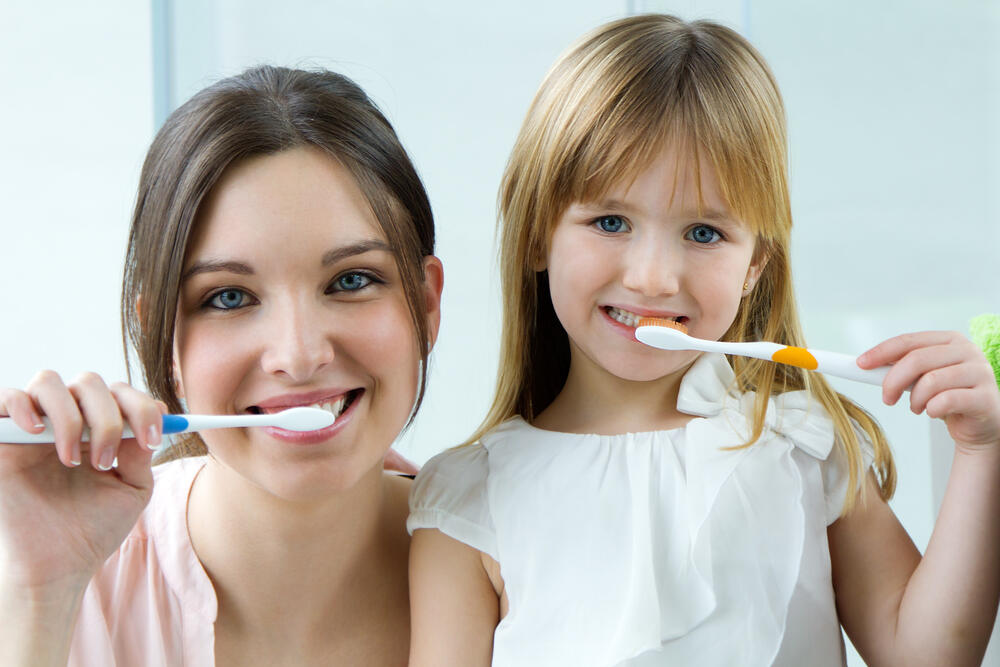It is commonly acknowledged that teaching children to take care of their teeth from an early age increases their chances of having excellent oral hygiene as adults. As a parent, you’re constantly seeking new methods to provide the best possible care for your kid. That means you want them to have beautiful, healthy smiles. It may be challenging to ensure that your kid correctly cares for their teeth since many factors are considered. Of course, several helpful hints and techniques may make keeping proper dental hygiene a breeze.
Dental hygiene is the act of keeping one’s mouth, teeth, and gums clean and healthy to avoid illness. Dental hygiene and dental health are frequently overlooked, although they are essential aspects of our daily life. Given the large number of children who spend time in child care each week, child care providers are playing an increasingly crucial role in promoting excellent dental hygiene.
According to the Center for Community Child Health, children’s oral health has improved in the recent decade. However, it remains a source of worry, with an estimated 50% of children aged six years suffering from caries. According to a recent study on tooth decay in young children, over 84 percent of four-year-olds begin school having clinically apparent untreated decay.
The following are the most prevalent causes of deterioration in preschool children:
- putting off brushing your teeth
- dental brushing that is uneven or wrong
- long-term usage of bottles, particularly at night
- the employment of dummies that have been coated with delicious ingredients
- a lot of munching
- a high sugar intake
- a lack of parental concern/awareness
Although parents are ultimately responsible for educating their children on caring for their teeth and gums, child care providers play a crucial role in supporting and enforcing what they learn at home.
How to Take Care of Children’s Tooth Decay
Child care centers may help youngsters avoid tooth decay by following as many of the following rules as possible:
- Never put a bottle to bed with a baby or little kid.
- Avoid using pacifiers that have been dipped in sweet things like honey.
- Fluoridated water should be offered as an alternative to any other beverage.
- Limit the amount of sugary snacks you provide your kids during the day.
- Give your kids food that encourages them to chew.
- Remind youngsters of the need to rinse their mouths with water after each meal and snack.
- Consider starting teeth brushing regimen.
Teeth Brushing Program for Children at Child Care Centers
Child care centers with the resources to implement a teeth brushing program for children in their care should aim to follow the following criteria:
- To eliminate plaque and milk from a baby’s gums and teeth, wipe them with a clean, wet face cloth or cotton gauze.
- Recognize that some children may not brush their teeth at home and that introducing a tooth brushing program allows children and their families to learn about good oral health and build and practice skills to support what they know.
- Low-fluoride toothpaste should be used with small, soft children’s toothbrushes.
- To minimize cross-contamination, toothbrushes should be individually labeled and kept separately.
- A pea-sized quantity of toothpaste should be pushed into the bristles by children.
- Brushing children’s teeth or supervised brushing should be done until they can master the procedure independently.
- Mouthwashes for children should only be used if recommended by a doctor or dentist.
- Children under the age of six should only wash their teeth twice a day.
If your child is old enough, use a kid-friendly fluoride mouthwash as per the product’s label. Children above the age of 12 may also benefit from whitening strips and gels. Brush their teeth with a bit of amount of baking soda mixed with water. A baby tooth that has been knocked out or damaged requires immediate attention.
If A Child’s Tooth Is Chipped or Knocked Out Completely
- Act as though it’s an emergency, and notify the parents/family.
- DO NOT re-implant the tooth into the socket. Baby teeth aren’t frequently positioned below the gum line.
- Rinse the teeth or tooth pieces gently in milk to remove any blood, then put in a clean container or cover in cling film to present to the parent or dentist.
- Seek dental advice as soon as possible, and accompany the kid to the dentist with the tooth/tooth pieces.
- Fill out a report of injury form.
- Contact Pediatric Dentist Indianapolis IN for any help.
How to Deal With Child Permanent Tooth Damaged
A permanent tooth that has been knocked out or damaged requires immediate attention.
- Remove extra debris and blood from the teeth and tooth pieces by gently rinsing them in milk for a few seconds.
- Handle the tooth by its crown (the white enamel top portion of the tooth), not its root, and be cautious not to wipe off the tissue pieces on the root, which are necessary for the tooth to accept if the dentist replaces it.
- Replace the tooth in the socket (make sure it’s appropriately by comparing it to the teeth adjacent to it; the tooth’s front surface should be convex outwards).
- Seek dental counsel as quickly as possible, and make sure the kid and the tooth/tooth pieces are taken to the dentist within 30 minutes since the root endothelium layer starts to degenerate beyond that time.
How to Attain Good Oral Hygiene Practices
Good oral hygiene practices and a good level of care for children in foster care may be attained by:
- In collaboration with dentists, parents, and employees, develop oral health policies and programs.
- On enrolling, contact information for the children’s dental practitioner is recorded.
- Staff should notify parents if they see any signs of dental decay, such as swelling, tooth damage, gum bleeding, and discomfort while chewing, and so on.
- Keeping age-appropriate oral health education programs and literature available to pique interest.
Make Oral Hygiene Routines Enjoyable For Your Child
Make things fun for yourself. Brushing and flossing your child’s teeth does not have to be a chore. Making brushing and flossing a game, encouraging a child to emulate the parent’s actions, playing music and may help make brushing and flossing more fun.



